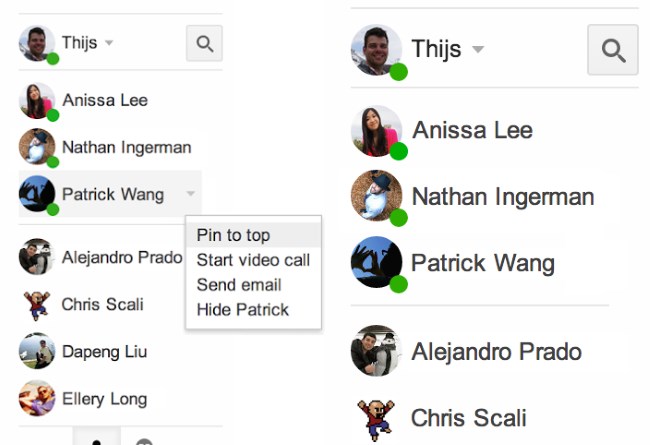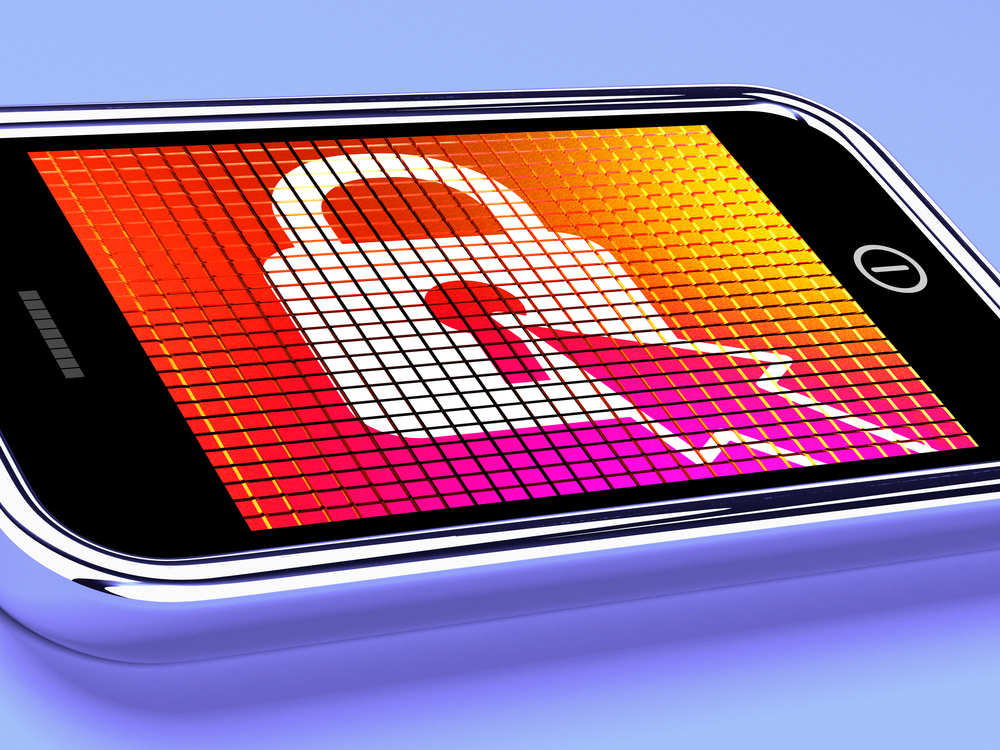Chrome 38 Beta makes user-switching feature more visible, adds 64-bit support to OS X and Windows
Google has updated its Chrome Beta channel with the release of Google Chrome 38.0 Beta. The new release, also available as Google Chrome 38.0 Beta (64-bit) for Windows and Linux, has two major highlights.
The first is an improved -- and more visible -- way of managing and switching between multiple Chrome user profiles, while the other sees 64-bit support extended to the OS X platform.

Could buying Cyanogen give Microsoft some smartphone credibility?
I'm not going to retread old ground too much here, but there's no getting away from the fact that Microsoft has something of an image problem when it comes to smartphones. But this could be set to change. The word on the grapevine is that Microsoft -- possibly in conjunction with the likes of Yahoo and Amazon -- is interested in joining forces with, or even, buying Cyanogen Inc, purveyor of some of the finest Android ROMs known to humanity. It's a branch of Android favoured by handset owners who live and breathe tweaking, who want an OS custom made to fit them like a well-tailored suit.
Little is known about what form any future arrangement might take, or how far talks have got so far. But we do know that Cyanogen Inc has met with Satya Nadella -- as reported by The Information. It would be interesting to see where this could go. There are two possible avenues that immediately spring to mind. The first -- and probably the least likely -- is that Microsoft might consider creating custom Windows Phone ROMs. This seems somewhat improbable, but there's another option: Microsoft could be looking to muscle in on Google's Android territory. This is not as far-fetched as it might first sound.

Google Authorship comes to the end of the line
Continuing its propensity for terminating projects, Google has decided to kill of its Authorship program. The markup was introduced to provide online writers with a way to link their work to their Google+ profile and have their profile picture displayed in search results. But in its three year lifespan, Authorship did not really manage to take off, and Google Webmaster Tools' John Mueller announced that "we've also observed that this information isn't as useful to our users as we'd hoped, and can even distract from those results. With this in mind, we've made the difficult decision to stop showing authorship in search results".
Head to one of the Google Authorship support pages and you're greeted by the message: "Authorship markup is no longer supported in web search". This is an interesting move, especially considering how keen Google has been to push people into using Google+. Authorship not only enables writers to more visibly stamp their mark online, but also to gain a following. In practice it was found that Authorship did little to help drive traffic and "wasn't always easy to implement".

Project Wing is Google's drone-based goods delivery system
Drones tend to be associated with surveillance and crowd control, but Google is the latest firm to express an interest in using the unmanned machines as a delivery service. Facebook has previously talked about using drones to "deliver the internet to everyone", and Amazon has also toyed with the idea, but now the search giant wants a piece of the action. The company's development team, Google X, has been beavering away on a delivery system powered by drones, and details of how it works have now been released.
Unlike other drones that tend to take a quad-copter design, Google's take on the idea sees a merging of a plane with a helicopter. Fitted out with a single wing and four propellers which move into different positions when flying, the drones have a housing unit for packages in the center of the wing. The Atlantic has a great deal of background about the project and it looks as though rather than being used to ship things that shoppers have bought, it is more likely to be used to help in disaster areas where aid is needed.

Google, Nvidia and VMware team up to bring graphics-intensive apps to Chromebooks
VMware, Google and Nvidia are all teaming up in a scheme which will allow high-end graphics intensive applications to be used on a lowly Chromebook.
How will that work? Obviously a Chromebook doesn't have the horsepower to run heavyweight programs such as, say, Photoshop or AutoCAD, but the laptop won't be running it in this case. The software will run in the cloud, on powerful machines in data centers, and be streamed to the notebook.

Circular-faced LG G Watch R to be unveiled at IFA 2014
IFA 2014 kicks off in Berlin next week, and one of the devices that will be on display is the LG G Watch R. LG is looking to expand further into the wearable market with another Android Wear watch and the killer feature this time around is a round display.
The circular Plastic OLED face has be been designed to make use of the entire surface -- there is no bezel whatsoever. In terms of looks this could be what sells LG G Watch R, as it's a device that's likely to appeal to those pandering for a more traditional look to their wearable tech.

The top 10 security software design flaws and how to avoid them
It's a fact that most software has bugs of some sort when it gets released. More significant are fundamental flaws in the design, yet whilst bugs generally get fixed, design flaws are often overlooked.
In an effort to address this professionals organization IEEE is bringing together leading figures from Google, HP, Twitter and Cigital to form a Center for Secure Design group with the aim of tackling serious design flaws in software.

There is simply no reason for anyone to care about the iPhone 6
Let's cut to the chase. No, they shouldn't. The iPhone used to be exciting and interesting. It used to be aspirational and high-end. Now the world and his dog has an Apple handset and it's turned from something special into a poor substitute for one of the countless alternatives. This is not to say that the popularity of the device in itself makes it less appealing, but it certainly seems to have made Apple lazy. Innovation has gone out of the window. We've had the same design for the handset for what seems like an eternity. It looks as though there might be something of a change in style this time around, but is this really enough to make the iPhone exciting -- or even interesting -- once again?
By far the biggest problem with the iPhone is the lack of choice. While Android users (and even Windows Phone fans) have a huge number of handsets to choose from, the same cannot be said of those sucking on Apple's teat. Things did improve slightly when the 2013 iPhones were released, but you're still stuck, essentially, with two phones to choose from -- the really expensive over-hyped one, or the pale imitation wannabe version. Some choice. To be clear… I've been an iPhone owner. It's a functional phone, but Christ it's dull.

Google makes it easier to see who's online in Hangouts for Gmail
The point of any chat system is to make it easier to communicate with others. This is something that Google Hangouts has singularly failed at, for one reason. Rather than making it obvious which of your contacts are online, it has -- up until now -- displayed a chronological list of the conversations you have held with people. This is about to change. Rolling out over the next few days, is an update which will see your online contact move to the top of your chat buddy list.
This might seem like a small change, but it's one that has been requested for some time now. Google seemingly thought that the tried and true way of ordering contacts was due for a shakeup -- now we know that the experiment didn’t really pay off. There's another new feature to play with as well. Just as Chrome -- and other browsers -- make it possible to pin frequently used tabs so they are always available, now Hangouts users will be given the opportunity to pin contacts to the top of their buddy list.

Google unveils Google Slides for Android and iOS, view and edit Google Drive-hosted presentations offline
Google has unveiled Google Slides for Android 1.0 and Google Slides iOS 1.0.0, new apps for accessing and editing presentations while on the move.
Both apps provide users with an option for downloading presentations to their devices for editing and viewing while offline. The iOS version is accompanied by updates to both Google Docs for iOS and Google Sheets for iOS that allow users to edit Word and Excel files.

California brings in smartphone kill switch legislation to protect handset owners
In California, a bill has been passed that will require smartphone manufacturers to include a kill switch in their handsets. The bill states that "any smartphone, as defined, that is manufactured on or after July 1, 2015, and sold in California after that date, include a technological solution at the time of sale, which may consist of software, hardware, or both software and hardware, that, once initiated and successfully communicated to the smartphone, can render inoperable the essential features, as defined, of the smartphone to an unauthorized user when the smartphone is not in the possession of an authorized user". It's a lengthy description, but it means the kill switch that many people have been asking for for so long is becoming a reality in another state.
This is not the first time a kill switch bill has been passed -- Minnesota did something similar back in May. The SB 926, Leno Smartphones bill in California is rather more far-reaching and comes partly in response to the statistic that between 30 and 40 percent of robberies in major US cities are smartphone robberies. Once activated, the kill switch will prevent a phone from being registered on a wireless network, and cannot be bypassed even with a hard reset. In the event of theft, a user will also be able to remotely wipe their device to protect any private information they may have stored on it.

Google Drive for Work sees strong enterprise adoption
Google’s Drive for Work storage product is seeing 1,800 new businesses sign up every week as enterprises continue to come around to the secure storage and collaboration option that it offers.
A blog post by Scott Johnston, director of product management at Google Drive, explained that the $10 (£6) per user per month package has been popular across a number of industries since it was launched just two months ago.

Gmail app hacked with 92 percent success rate
Researchers from the University of California Riverside's Bourns College of Engineering have identified a weakness in Android which allows personal data to be obtained from apps.
Tested against seven popular apps the method was between 82 and 92 percent successful on six of them, only Amazon with a 48 percent success rate proved more difficult to crack. Most vulnerable were Gmail and H&R Block at 92 percent, followed by Newegg (86 percent), WebMD (85 percent), CHASE Bank (83 percent) and Hotels.com (83 percent).

Run Windows software on Google's Chromebooks with Citrix Receiver for Chrome
Chromebooks are amazing computers. Part of the genius of Google's Chrome OS is its lack of freedom; a seemingly crazy statement, I know. You see, users cannot install software locally, which in turn, also blocks viruses and malware. In other words, limitations become a strength from a security standpoint. However, sometimes the limitations of the OS are not a positive, but a negative.
For business users in particular, using Chrome web apps exclusively is a non-starter. Sure, some small business users can get by, but many large companies rely on specialized software -- mostly for Windows. Today, Windows programs come to Chromebooks -- sort of. Google announces that Citrix Receiver is coming to Chrome OS. Will this massively disrupt the business market?

Google sets its sights on kids with child-friendly versions of YouTube and Gmail
There are many parts of the internet that are blocked to children under the age of 13. Facebook, for instance, implements an age restriction and Google is another online firm that prevents younger web users from setting up accounts. But all this could be set to change. First reported by The Information, Google has plans to open up its service to a younger audience. This does not mean that youngsters will be free to sign up for an account and browse through the contents of YouTube without restrictions. Parents will be able to sign their children up for an account and retain control over what they are able to do online.
One of the primary concerns many people have about Google -- regardless of their age -- is privacy. Google has a proven track record in delivering tailored content and advertisements to its users, and this is something that is at odds with laws around the world when it comes to children. The news coincides with UK plans to experiment with age ratings for online videos, and privacy and child protection groups are already voicing their concerns. Of course, there is nothing to stop someone of any age from signing up for a Google account; it's easy to stretch the truth with dates of birth online. But Google specifically targeting children with its services is unchartered water.